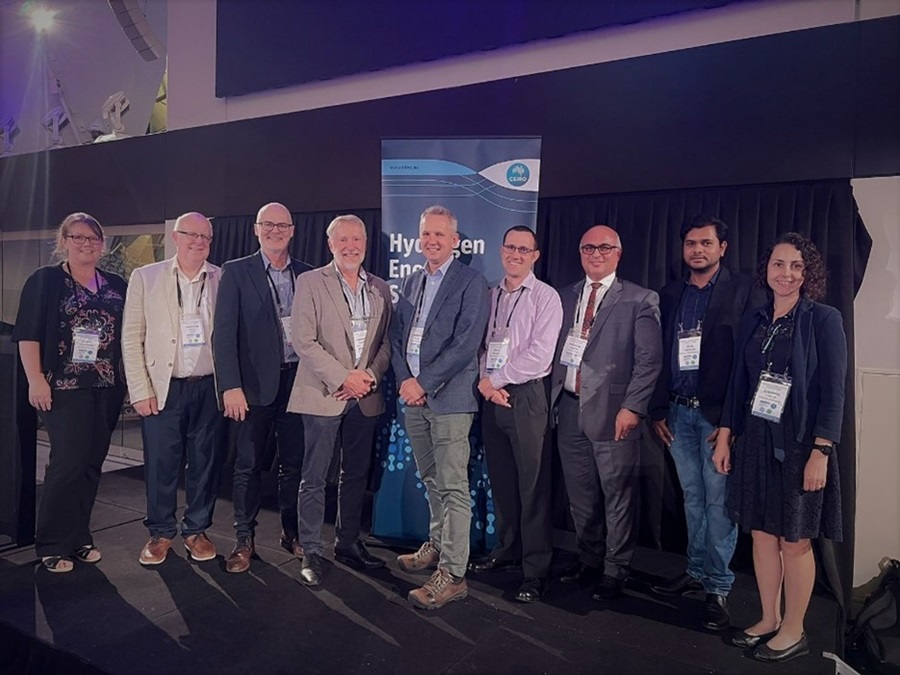AHRN Newsletter March 2023



After months of preparation, we had a hugely successful first conference earlier this month, the hall at the ANU Kambri Centre could barely take the 326 actual attendees. The conference was opened by Jenny McAllister, the Assistant Minister for Climate Change and Energy in the Albanese Labor Government, after which we were inspired by a talk given by Dr Alan Finkel, former Chief Scientist of Australia and architect of the National Hydrogen Strategy. Download his speech.
The conference program was a mixture of plenary sessions and four parallel sessions over the three days all of which illustrated both the breadth and depth of research being undertaken by participants in Australia and in other countries. We were especially pleased to welcome the ExCo members of the International Energy Agency Hydrogen Technology Collaboration Program, the DFAT delegation from ASEAN countries and other visitors from overseas.
Special thanks to co-chair Prof Ken Baldwin from ANU and the conference committee (above) for bringing the event together. A special mention to Andrew Feitz and the people at Geoscience Australia who facilitated site visits the day before the conference. These were greatly appreciated, especially by our overseas visitors.
Several people have remarked afterwards that this research conference had an amazing buzz from the opening reception right to the end. There was no drifting away of delegates that is often the case with other conferences. There was a lot to take on board, sessions were often filled to overcapacity (note for next time), but even so 219 of the delegates attended the dinner at the National Museum of Australia. This was a great location for researchers to interact and explore future cooperation in a relaxing setting. It was obvious to the organising committee that this was to be the first of many hydrogen research conferences.
During the AHRC2023 dinner it was announced that this year the AHRN will become a subscription-based non-profit association. Whilst maintaining our close associations with hydrogen stakeholders such as the CSIRO, this will give the research community greater freedom to organise its own events and other activities. Building on what has been achieved over the past 18 months, the new arrangements should promote greater collaboration both within Australia and internationally.
We propose the following grades of membership for hydrogen researchers and stakeholders: Member, Graduate, Student, and Retired/Emeritus.
Further details of the new association and rules will be published in a future newsletter but the following are the expected benefits that the new association will be able to provide members:
* Our first topical status paper is “Hydrogen Production by Water Electrolysis – an introduction to the technologies and their status.”
Anyone interested in taking an more active role in the AHRN as we move to a new association format should contact Andrew Dicks at adicks@ah2rn.org.au or phone 0458077727.
The Australian government International Research Collaboration Program has selected the following research fellows in the first round of selections:
These fellows are busy preparing to visit world class research institutions and labs across the globe to undertake between 3 to 12-month research. We wish them well!
A second-round selection will soon take place. We really encourage you to consider applying to take up this lifetime opportunity. Eligibility and selection criteria details